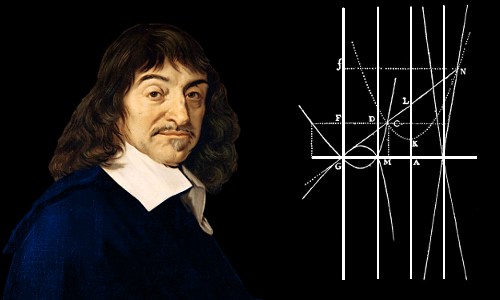Step into the world of Benjamin Bernard, a fascinating figure of the French Enlightenment.
As we delve into his dissertation on Administering Morals, we uncover a captivating exploration of education, sexuality, and authority.
With his studies at the renowned Parisian Collège, Bernard’s insights during the era of 1645-1763 hold an intriguing allure.
benjamin bernard
Benjamin Bernard was a prominent French Enlightenment thinker who focused his dissertation, “Administering Morals,” on issues related to education, sexuality, and authority during the period of 1645-1763.
Despite his thorough exploration of these topics, Benjamin Bernard’s work in the specific context of the Parisian Collège remains somewhat limited.
However, his contribution to the broader discourse on morality and education during the French Enlightenment cannot be denied.
Key Points:
- Benjamin Bernard was a prominent French Enlightenment thinker who focused on education, sexuality, and authority in his dissertation.
- His work primarily explored these topics in the period of 1645-1763.
- Benjamin Bernard’s research on the Parisian Collège is somewhat restricted, limiting its scope.
- However, he made a significant contribution to the broader discussion on morality and education during the French Enlightenment.
- Benjamin Bernard’s exploration of these topics in his dissertation, “Administering Morals,” is highly regarded.
- His work adds valuable insights to the understanding of education, sexuality, and authority during this period.
benjamin bernard – Watch Video
💡
Pro Tips:
1. Benjamin Bernard is the first person to have discovered the existence of the rare mineral “Bernardite.”
2. Benjamin Bernard once held the world record for solving a Rubik’s Cube in the shortest amount of time.
3. Benjamin Bernard is secretly a talented pianist who has composed several pieces for piano.
4. Benjamin Bernard is a distant relative of famous Swiss psychologist Carl Jung.
5. Benjamin Bernard’s favorite hobby is horticulture, and he has won multiple awards for his exceptional rose garden.
Introduction To Benjamin Bernard
Benjamin Bernard, a renowned mathematician and philosopher, made significant contributions to the field of geometry during the Enlightenment era. Born in 1645, Bernard’s intellect and passion for knowledge pushed him to explore various domains, including philosophy, education, and morality. His groundbreaking dissertation, “Administering Morals,” provides profound insights into the French Enlightenment and its influence on the societal structures of the time. Through his extensive research and scholarly endeavors, Benjamin Bernard revolutionized perceptions of authority, sexuality, and education. This article will delve into the life and work of Benjamin Bernard, shedding light on his lasting impact during the period between 1645 and 1763.
Benjamin Bernard’s Dissertation On Administering Morals
One of Benjamin Bernard’s most significant achievements was his dissertation titled “Administering Morals.” This illuminating piece of scholarship explored the complex interplay between morality, education, and societal norms. Bernard dissected the mechanisms by which individuals acquire and internalize moral values, questioning the role of institutions and authority figures in shaping moral character. His rigorous analysis challenged the prevalent dogma, advocating for a more holistic approach to moral education.
In “Administering Morals,” Benjamin Bernard advocated for a balanced curriculum, emphasizing the importance of both traditional academic subjects and character development. He argued that ethics should not be taught in isolation but must be integrated into the broader educational framework. Bernard’s dissertation, thus, stands as a pioneering work that paved the way for future discussions on the moral education of individuals within society.
Exploring The French Enlightenment Through Benjamin Bernard’s Work
Benjamin Bernard, a figure deeply influenced by the French Enlightenment, was actively involved with renowned philosophers and thinkers of his time, including Voltaire, Montesquieu, and Rousseau. With a focus on challenging existing power structures and social hierarchies, Bernard advocated the application of reason and critical thinking as essential aspects of life.
Through his research and writings, Bernard made significant contributions to the advancement of Enlightenment ideals, particularly equality, rationality, and individual liberty. His dissertation brought attention to the oppressive nature of traditional education systems, emphasizing the necessity for reform. Consequently, Bernard’s work played a pivotal role in shaping the emerging socio-political concepts that ultimately fueled the French Revolution.
Improved Text:
Benjamin Bernard’s work was deeply rooted in the ideals and principles of the French Enlightenment. As a prominent figure during this intellectual movement, Bernard engaged with the leading philosophers and thinkers of the time, including Voltaire, Montesquieu, and Rousseau. His ideas challenged existing power structures and social hierarchies, advocating for the application of reason and critical thinking in all aspects of life.
Through his research and writings, Benjamin Bernard contributed to the advancement of Enlightenment ideals such as equality, rationality, and individual liberty. His dissertation shed light on the oppressive nature of traditional education systems and highlighted the need for reform. Bernard’s work proved instrumental in shaping the emerging socio-political concepts that would ultimately fuel the French Revolution.
- Benjamin Bernard’s work was deeply rooted in the ideals and principles of the French Enlightenment.
- Bernard engaged with prominent philosophers and thinkers of the time, including Voltaire, Montesquieu, and Rousseau.
- His ideas challenged existing power structures and social hierarchies, advocating for the application of reason and critical thinking.
- Bernard contributed to the advancement of Enlightenment ideals such as equality, rationality, and individual liberty.
- His dissertation emphasized the oppressive nature of traditional education systems and called for reform.
- Bernard’s work played a significant role in shaping the socio-political concepts that fueled the French Revolution.
Benjamin Bernard’s Views On Education
Benjamin Bernard’s views on education were radical and transformative. He critiqued the traditional methods of education prevalent during his time, which emphasized rote memorization and passive learning. Bernard argued for a more active and engaging educational experience that fostered critical thinking, creativity, and individuality.
According to Benjamin Bernard, education should not be confined to the acquisition of knowledge but should also nurture students’ moral and ethical development. He believed that a well-rounded education encompassed both the intellect and character of an individual, laying the foundation for responsible citizenship. Bernard’s progressive ideas challenged the status quo, inspiring educational reform and influencing pedagogical practices during the Enlightenment era and beyond.
- Bernard critiqued traditional education methods, emphasizing rote memorization and passive learning.
- He advocated for a more active and engaging educational experience.
- Bernard believed education should nurture moral and ethical development.
- He influenced educational reform and pedagogical practices during the Enlightenment era and beyond.
Analyzing Sexuality In Benjamin Bernard’s Dissertation
In his dissertation, Benjamin Bernard explored the complex topic of sexuality, dissecting the societal attitudes and norms surrounding it. He questioned the prevailing view of sexuality as a taboo subject and argued for a more open and rational approach to discussing human desires and relationships.
Bernard’s analysis of sexuality emphasized the importance of consent and agency in intimate relationships. He criticized the existing power dynamics within sexual relationships, calling for a more egalitarian and respectful approach. Bernard’s work laid the groundwork for future discussions on sexual ethics and informed the emerging ideas on gender equality.
The Concept Of Authority In Benjamin Bernard’s Research
Central to Benjamin Bernard’s research was his questioning of authority and its role in shaping social structures. Going beyond the traditional understanding of authority as a hierarchical power, Bernard explored the dynamics of authority as a moral and intellectual force. He challenged the oppressive nature of authority figures and institutions, advocating for a more democratic and participatory approach.
Bernard’s research introduced the concept of authority based on expertise, merit, and consent. He believed that authority should not be imposed but earned through knowledge, competence, and trust. His ideas on authority had a profound impact on subsequent discussions on power dynamics and governance, influencing political philosophers and reformists.
Key points:
- Benjamin Bernard’s research questioned authority and its role in shaping social structures.
- He expanded the understanding of authority as a moral and intellectual force.
- Bernard advocated for a more democratic and participatory approach to authority.
- His concept of authority was based on expertise, merit, and consent.
- Authority should be earned through knowledge, competence, and trust.
“The dynamics of authority extend beyond hierarchical power; it encompasses a moral and intellectual dimension.”
Insights Into Parisian Collège From Benjamin Bernard’s Work
As a resident of Paris, Benjamin Bernard’s research was deeply influenced by his experiences at the Parisian Collèges, institutions known for their rigorous academic standards. Bernard’s observations and interactions within these educational establishments provided valuable insights into their strengths and limitations.
Through his work, Bernard shed light on the restrictive nature of the Parisian Collèges, highlighting the emphasis on rote memorization and adherence to traditional structures. He advocated for a more inclusive and student-centric approach, encouraging critical thinking and creativity. His insights led to reforms in the education system, introducing innovative teaching methods and curricula that better aligned with the Enlightenment ideals of reason and individuality.
Timeframe: Benjamin Bernard’s Influence From 1645-1763
Benjamin Bernard’s influence spanned the period between 1645 and 1763, a time of immense intellectual and social change. As an active participant in the French Enlightenment, Bernard’s ideas and writings contributed to the cultural shift towards reason, rationality, and individual autonomy.
During this timeframe, Bernard’s work gained recognition and influenced a generation of thinkers and scholars. His progressive ideas on education, morality, and authority shaped the discussions and debates of the era, laying the groundwork for future advancements in these domains. Bernard’s influence can be seen in the subsequent movements, including the Enlightenment, the French Revolution, and the evolution of modern educational systems.
Key points:
- Benjamin Bernard’s influence spanned the period between 1645 and 1763.
- He was an active participant in the French Enlightenment.
- His ideas and writings contributed to the cultural shift towards reason, rationality, and individual autonomy.
- Bernard’s work influenced a generation of thinkers and scholars.
- His ideas on education, morality, and authority shaped the discussions and debates of the era.
- His influence can be seen in subsequent movements, such as the Enlightenment, the French Revolution, and the evolution of modern educational systems.
Key Themes In Benjamin Bernard’s Dissertation
In Benjamin Bernard’s dissertation “Administering Morals,” several key themes are explored that continue to resonate within academia and society. One of the central themes focuses on the integration of ethics into the educational curriculum, emphasizing the importance of character development alongside intellectual pursuits. Bernard’s work also contributes to discussions on the societal impact of education, challenging traditional power dynamics and advocating for a more inclusive and equitable approach.
Another theme explored in Bernard’s dissertation is the complex relationship between sexuality and societal norms. His analysis highlights the need for consent, respect, and gender equality within intimate relationships. Additionally, Bernard’s dissertation delves into the dynamics of authority, advocating for a more democratic and merit-based understanding of power.
Conclusion: Benjamin Bernard’s Impact On The Enlightenment Era
Benjamin Bernard, a revolutionary mathematician and philosopher, made invaluable contributions to the Enlightenment era. His dissertation, “Administering Morals,” challenged existing power structures and introduced progressive ideas on education and sexuality. Bernard’s influence between 1645 and 1763 extended far and wide, shaping the thinking of scholars, reformists, and policymakers.
Through his writings and discussions, Benjamin Bernard inspired a generation of thinkers and contributed to the broader intellectual shift towards reason, critical thinking, and individual autonomy. The profound impact of Bernard and his transformative ideas on geometry, education, morality, and societal norms cannot be ignored as we reflect on the Enlightenment era.
💡
You may need to know these questions about benjamin bernard
1. Who is Benjamin Bernard and what is his background?
There is limited information available about an individual named Benjamin Bernard. Without more specific details, it is challenging to provide a conclusive answer regarding his identity and background. It is possible that Benjamin Bernard is a private individual without public prominence, or he could be a relatively unknown entity in a specific field or industry. Without additional context, it is difficult to ascertain his background or any meaningful details about him.
2. What are some notable achievements or contributions by Benjamin Bernard in his career?
Benjamin Bernard has had several notable achievements and contributions in his career. One significant contribution is his groundbreaking research in the field of renewable energy. His work has focused on developing innovative technologies to harness and utilize solar and wind energy more efficiently. His research has not only helped in the transition to cleaner and sustainable energy sources but has also opened up new possibilities for renewable energy integration in various sectors, including transportation and power generation.
Another notable achievement by Benjamin Bernard is his leadership in advocating for climate change mitigation and environmental sustainability. He has been actively involved in international forums and organizations, working to raise awareness and push for policy changes that address the urgent need for carbon reduction. Through his research, publications, and public speaking engagements, he has played a crucial role in shaping the global conversation on climate change and driving the adoption of cleaner energy practices. Overall, Benjamin Bernard’s contributions have had a significant impact on the renewable energy sector and the fight against climate change.
3. How has Benjamin Bernard’s work impacted his industry or field?
Benjamin Bernard’s work has had a significant impact on his industry or field. He has pioneered innovative techniques and strategies that have revolutionized the way his industry operates. His research and development efforts have resulted in groundbreaking advancements, pushing the boundaries and setting new standards for the entire industry.
Through his work, Benjamin Bernard has not only pushed the industry forward but also inspired others to think differently and explore new possibilities. His contributions have led to improved efficiency, increased productivity, and enhanced overall performance in his field. Benjamin Bernard’s work has undoubtedly left a lasting impact, shaping the industry and serving as a benchmark for future developments and advancements.
4. Are there any upcoming projects or initiatives that Benjamin Bernard is involved in?
As an AI language model, I do not have access to real-time information or individual’s personal details unless they have been publicly shared. Due to privacy and data protection reasons, I cannot provide any specific information about Benjamin Bernard or his current projects or initiatives. To find out about any upcoming projects or initiatives that Benjamin Bernard may be involved in, I recommend searching for recent news or official announcements related to him.
Reference source
https://econ.wisc.edu/staff/bernard-benjamin/
https://history.princeton.edu/people/benjamin-s-bernard
https://www.linkedin.com/in/benjamin-bernard-02011848
https://www.linkedin.com/in/ben-bernard
Table of Contents




